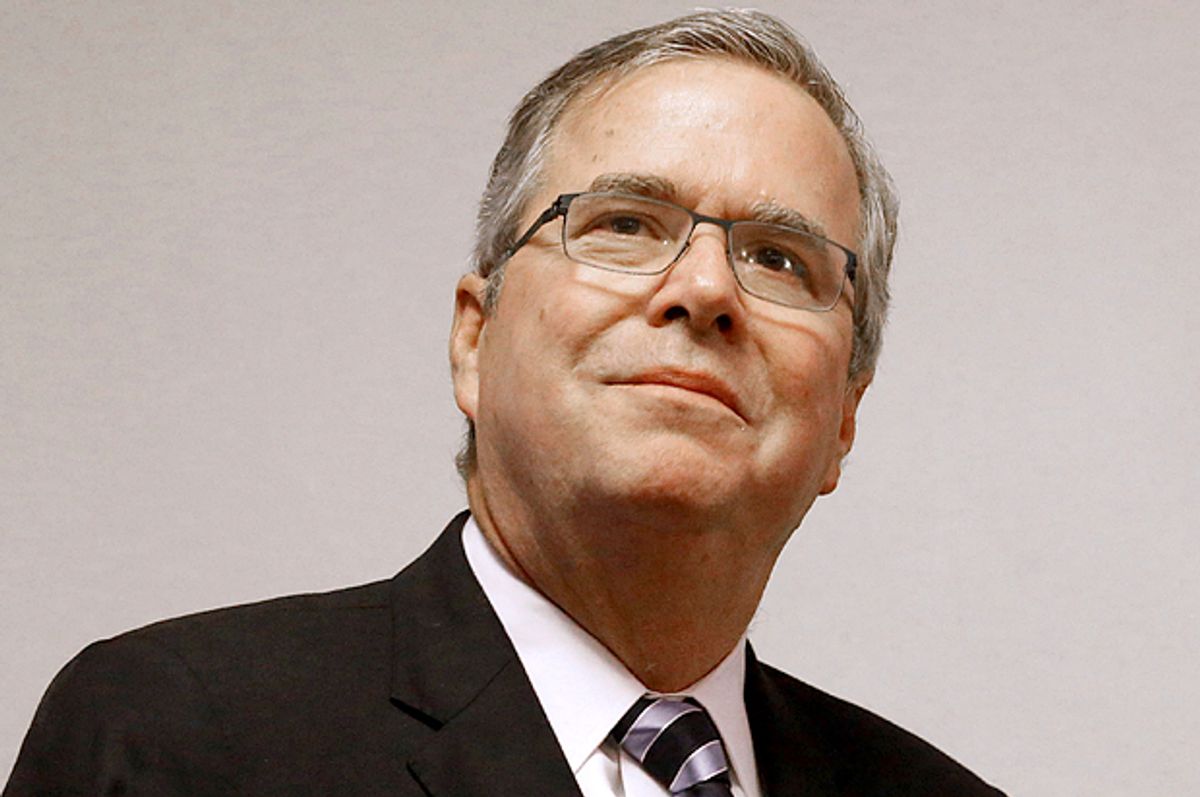I first discovered I was sexually attracted to men in middle school, around the time that President George W. Bush was pushing for the passage of a constitutional amendment banning same-sex marriage. Within a year of my realization, voters in 11 states approved ballot measures outlawing gay nuptials, and there was no shortage of punditry concerning how so-called "values voters" propelled Bush to a second term in the White House. A few months later, voters in my native Kansas had their own opportunity to vote on their gay neighbors' relationships; the result was an emphatic rejection of equality, as nearly three-quarters of those who went to the polls voted to write discrimination into the state constitution. As I grappled with my own sexuality, I could hardly ignore such developments.
Unlike far too many queer people, I grew up in a family I knew would embrace my queerness if I chose to come out. But watching state after state consign its gay citizens to second-class status conveyed an ominous message: I could come to terms with my sexual orientation, but I lived in a time and place in which most of my fellow Americans would see me as less than a full and equal citizen. My quiet knowledge that my parents and siblings would love me just the same mattered little as I contemplated this dispiriting prospect.
Little could I have imagined the political sea change that would occur on marriage equality over the next decade. Although Bush's political party remains overwhelmingly opposed to gay marriage, its position is now out of lockstep with public opinion. While they continue to support marriage discrimination, establishment-oriented Republicans, cognizant of the trend lines on the issue, would rather squelch talk of gay marriage entirely. Take the man who fancies himself the third Bush president. In contrast to his elder brother, who was perfectly happy to use gays as political punching bags to secure another four years in the Oval Office, Jeb Bush would rather not talk about his support for "traditional marriage"; marriage equality, he declared in 2012, is a "distraction" from the economy. Of course, the march of events often makes Bush's let's-talk-about-something-else position untenable. So it was that over the weekend, shortly after a judge ruled in favor of marriage equality in Florida, Bush was forced to weigh in on the subject, telling the Miami Herald that he believed same-sex marriage should be a "state decision."
On Monday, Bush waded into the debate once more. As same-sex marriages commenced in Florida, where he was once governor, Bush issued a statement that struck a sharply different tone than he did in 1994, when he denounced the notion that "sodomy" should enjoy the same protections as categories like race and religion. “We live in a democracy, and regardless of our disagreements, we have to respect the rule of law,” Bush said yesterday. “I hope that we can show respect for the good people on all sides of the gay and lesbian marriage issue – including couples making lifetime commitments to each other who are seeking greater legal protections and those of us who believe marriage is a sacrament and want to safeguard religious liberty.”
Encapsulating the media reaction to Bush's statement, the New York Times described it as "conciliatory," evidence of at least a "tepid acceptance" of the new status of marriage equality in American life. And at a time when Republicans like Ted Cruz and Sam Brownback are pledging to fight back against court rulings in favor of same-sex marriage, Bush's call to "respect the rule of law" clearly separates him from the GOP's most rabid culture warriors. But even though Bush isn't joining the calls for massive resistance against marriage equality, his statement still reflects a softly bigoted view of gay people.
To be sure, Bush's acknowledgment of "couples making lifetime commitments to each other" suggests that he has somewhat altered his personal views since the 1990s, when he condemned homosexuality as "wrong" and assailed measures guaranteeing equal rights for gays as "special legal rights." But Bush, associating himself with those "who believe marriage is a sacrament," nevertheless made clear that, in principle, he would still like to restrict marriage to straight people only. And what of Bush's words about "religious liberty"? He didn't specify which special rights he believes should be afforded to those who oppose same-sex marriage on religious grounds, but anti-marriage equality advocates have cited religious liberty to justify everything from refusing to grant marriage licenses to same-sex couples to denying services to LGBT citizens. Would Bush dream of urging people on "all sides" of the interracial marriage debate to respect each other's views -- including the Biblically-based view that interracial mingling is a sin? Something tells me that Bush would not be a fervent advocate of the "religious liberty" of racial bigots. But when it comes to homophobic bigots, Bush is willing to apply a different standard.
I'm willing to grant that Jeb Bush's statement Monday is a stark contrast to his brother's frequent denunciations of "activist judges" who ruled for same-sex marriage. But even if other Republicans remain obstinate in the face of social change, I'm unwilling to applaud Bush for his concession to the simple reality that marriage equality is here to stay. In one sense, that concession demonstrates how far this country his come since George W. Bush was president. Yet the unavoidable fact is that Bush believes that sexual orientation remains a legitimate basis for discrimination. And that underscores how, in some quarters, very little has fundamentally changed.

Shares